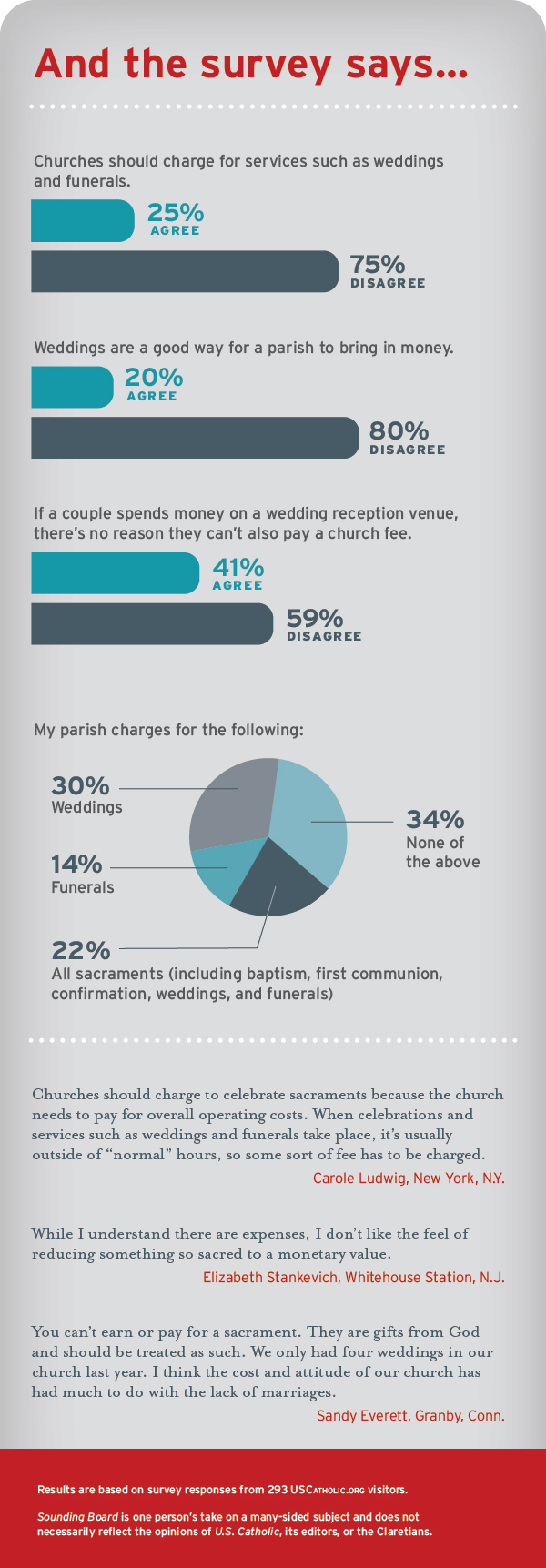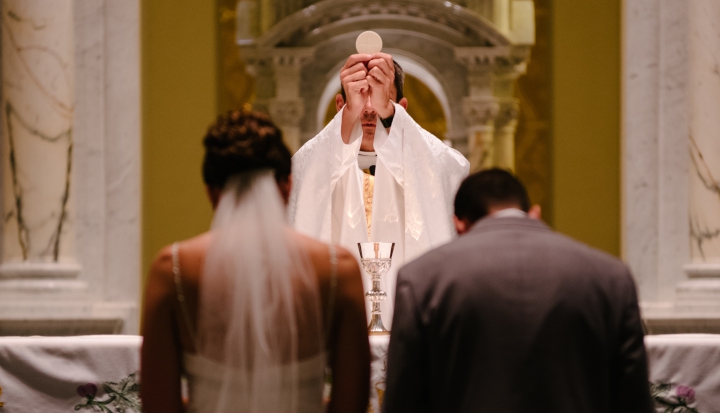The moment was 79 years ago, but it is as fresh in my mind as if it were yesterday: I was a first grader in Catholic school and, as such, was expected to attend the 9 a.m. Sunday children’s Mass. But I overslept, so my dad rushed me over to attend the adult Mass in the lower church at 9:30 a.m. I was excited about attending Mass with my dad and the “big folks.” It would also give me bragging rights at school the next day. As we approached the church entrance, there were men sitting at desks collecting “seat money.” My dad did not have the 10 cents they required, so the usher turned us away. My dad took me by the hand, and we walked a mile and a half to attend Mass at a different parish nearby.
Since then I have had more “money” experiences with the church—none of them good. One was when I was stationed at the Navy base in Washington, D.C. The senior chaplain boasted to me how he demanded $6,000 for the use of the chapel for a particular marriage because the people were no doubt going to spend a lot more for a hall and a banquet, and it was only right that the church should get its fair share. I remember thinking, “Everyone else is fleecing married couples; shouldn’t the church be above that?”
I am not alone. In 2014 Pope Francis condemned priests and laypeople who turn their parishes into businesses by charging for such things as baptisms, blessings, and Mass intentions, calling it a scandal that is hard to forgive. “There are two things that the people of God cannot forgive: a priest attached to money and a priest who mistreats people,” he said in the homily. He had centered his sermon that day on the Gospel of Luke, when Jesus turns over tables and drives out those who were selling things. Jesus, the pope said, had an issue with money because redemption is God’s free gift. He comes to bring us the all-encompassing gratuity of God’s love. So when a parish acts like a business, it’s as if salvation is no longer free. This is why Jesus takes out the whip in order to purify the temple of the corrupt.
Not long ago in my own parish, a couple called me to ask if they could renew their marriage vows at a Mass where I was the presider. I had witnessed their marriage 15 years earlier. When I told them to set it up with the secretary, they were told it would cost them $300. They were in tears because, with three children to care for, they couldn’t afford it. Luckily I had a little clout, and the fee was waived.
Then there was a couple I was to prepare for marriage at a very wealthy parish, though they were going to wed in another church. They were told it was OK, but since they wanted a “prime time” spot, it would cost them $3,400 plus the cost of the organist, singers, and wedding coordinators, and that if they wanted to give the presider a stipend it would be an additional charge.
When a couple decides to get married, they want their marriage to work and the wedding to be one of their most cherished memories. They are no doubt aware that their celebration will demand a significant outlay of money, time, and energy. But isn’t it the job of the priest helping them in their preparation to encourage them to keep their spending and celebration in perspective? This is very difficult for a pastor or priest if he has come to look upon a wedding as a way of making money to balance his parish budget.
Financial issues can cause more problems for couples than any other area of the relationship. It would be much easier for a priest to help a couple examine and share their values concerning money if he is not using this important celebration as a means of meeting the church’s financial obligations. And couples would be much more receptive to the solid advice of a priest who stresses how both they and the church should develop a mutual relationship. There is no harm in letting them know that the church was provided by hardworking parishioners and that they could do their part in making sure it remains available to other couples who wants to marry there in the future.
A traditional explanation for imposing stipends for marriages is that the priest deserves recompense for the time he spends instructing the couple. But that doesn’t seem to hold up in the United States, where the priest receives a salary in recognition of his priestly duties. The priest is much more like Christ when he enters into the joy of a couple who want to get married than he is when saying, “I am happy for you, but before you can schedule your marriage here you have to go to the office and put down a $300 deposit.”
None of these examples are worthy of a welcoming church. Isn’t it true that our church buildings were put up by loyal parishioners with their hard-earned money? Rather than paying to rent the building, they could show their appreciation in other ways. I can see perhaps a little donation when someone wants to use a church other than their parish as a convenience, but should we give people the impression that they will be able to receive the sacraments in their church only if they can afford it? It would be much better if we gave people seeking the sacraments a warm welcome instead of a bill.

This article also appears in the March 2018 issue of U.S. Catholic (Vol. 83, No. 3, pages 18–22).
Image: Unsplash via Josh Applegate














Add comment